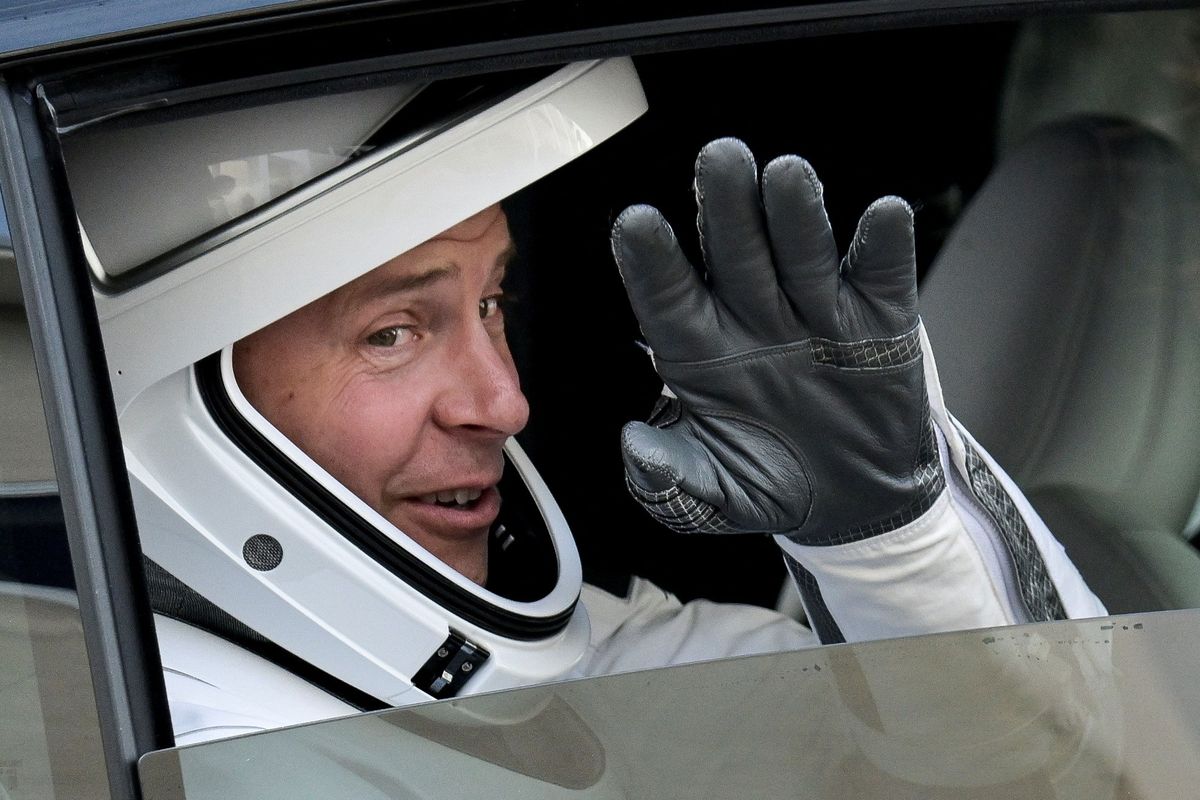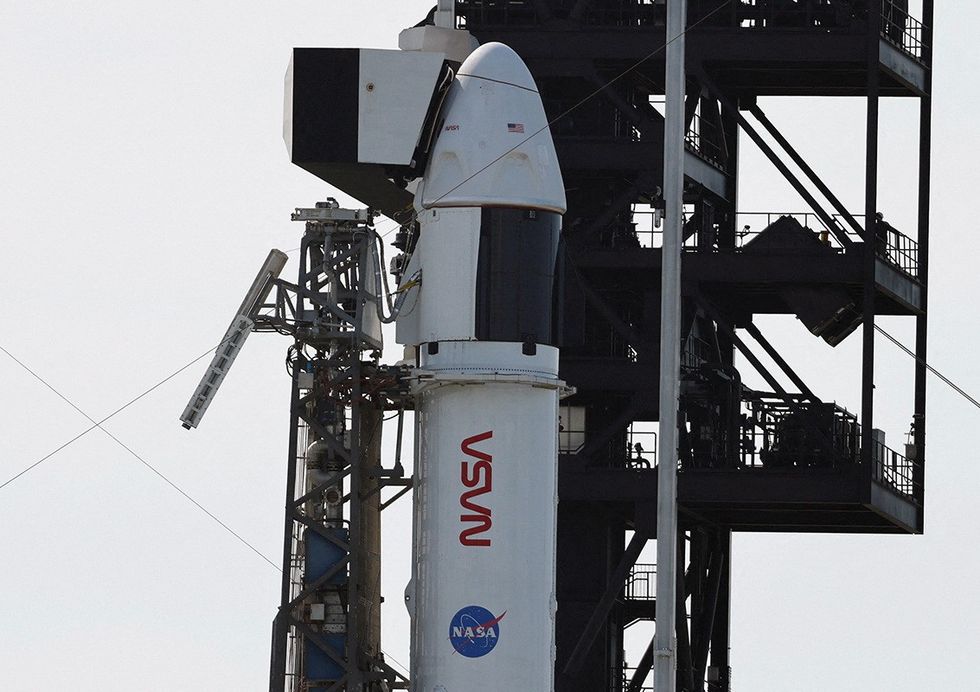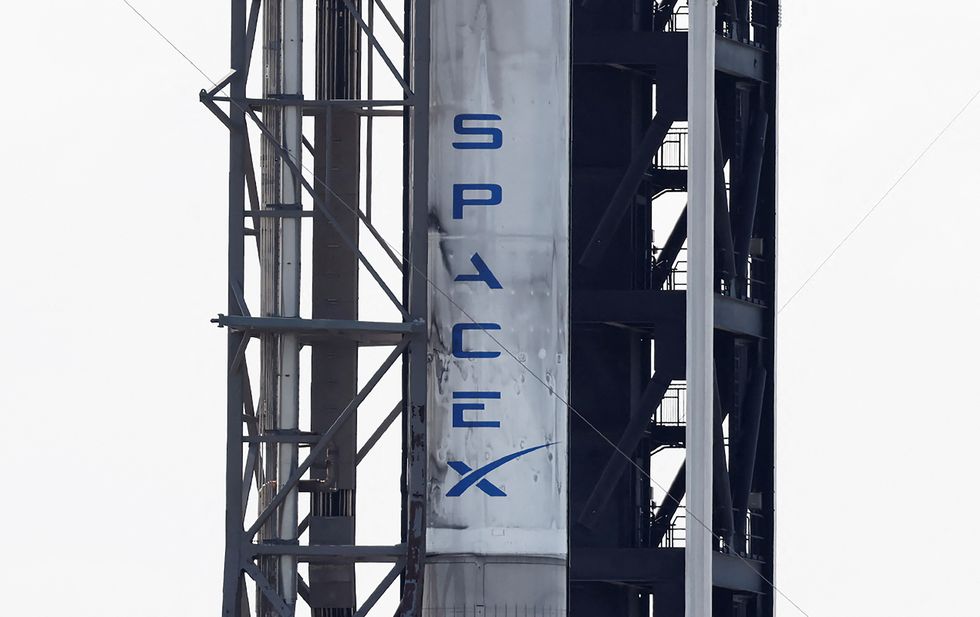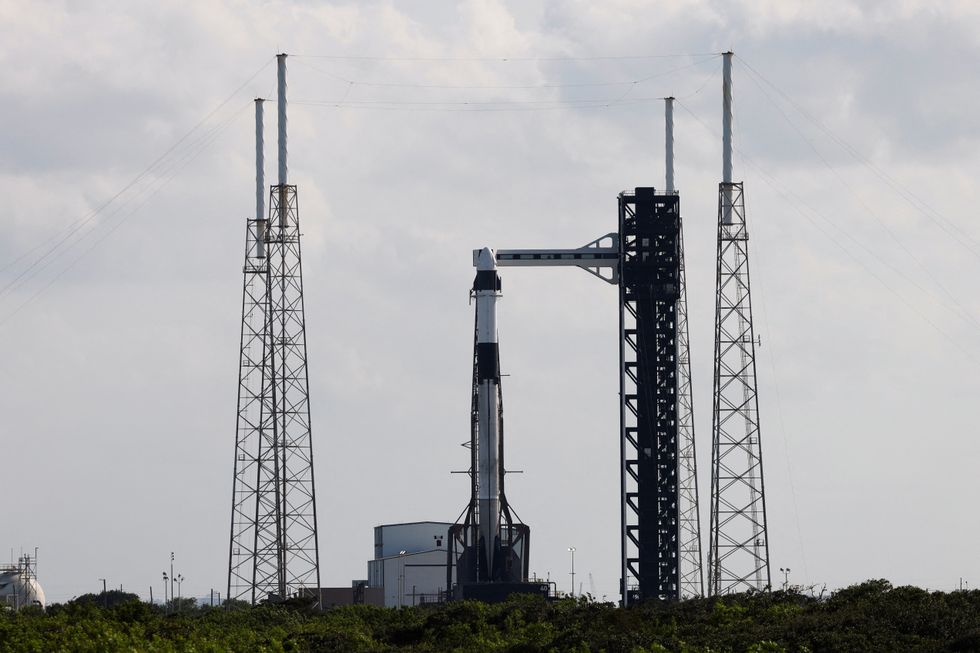US, Russian ISS astronauts in medical facility after SpaceX splashdown
SpaceX Dragon capsule experienced parachute issues during descent
Reuters
News Agency Partner
Reuters is a leading source of news and information, delivering fact-based reporting and expert analysis on international events and trends.

NASA's SpaceX Crew-9 astronaut Nick Hague gesture before his and Roscosmos cosmonaut Alexander Gorbunov mission to the International Space Station aboard a SpaceX Falcon 9 rocket from the Cape Canaveral Space Force Station, in Cape Canaveral, Florida, U.S., September 28, 2024.
Reuters
Four astronauts spent 235 days in space, marking SpaceX's longest mission
Return delayed for weeks due to hurricane activity near splashdown zones
Crew taken for additional medical evaluation after Gulf of Mexico landing
Three American astronauts and a Russian cosmonaut were taken to a medical facility "out of an abundance of caution" on Friday after returning to Earth from a nearly eight-month mission on the International Space Station, NASA said, without providing further details.
NASA astronauts Matthew Dominick, Michael Barratt, and Jeanette Epps, and Russian cosmonaut Alexander Grebenkin "were taken to a local medical facility for additional evaluation," NASA said in a statement following the crew's 3:29 a.m. ET (0729 GMT) splashdown off Florida's Gulf Coast in their Crew Dragon spacecraft.
The crew had their standard medical evaluations upon exiting the craft, NASA said, but added, "out of an abundance of caution, all crew members were flown to the facility together" for the additional evaluations.
Reuters
A SpaceX Falcon 9 rocket is prepared to launch NASA's astronaut Nick Hague and Roscosmos cosmonaut Alexander Gorbunov on the Crew-9 mission to the International Space Station at the Cape Canaveral Space Force Station in Cape Canaveral, Florida, U.S., September 27, 2024. Launch was scheduled for September 28.



NASA, which is usually tight-lipped on astronaut medical issues, declined to say what prompted the abundance of caution or describe the crew's condition. Russia's space agency did not immediately return a request for comment on Grebenkin's condition.
SpaceX maintains a fleet of reusable spacecraft and has flown to the ISS 44 times. The Elon Musk-owned company remains the only U.S. option for NASA astronaut trips to and from the ISS. Boeing's Starliner, intended as a second U.S. ride, has been hobbled by years of development issues.
Marking 235 days in space, the Crew-8 astronauts' stay aboard the ISS, a football field-sized science lab 250 miles (402 km) in orbit, was longer than the typical six-month astronaut missions on the station. It also marked the longest mission so far for SpaceX's Crew Dragon spacecraft, which debuted in 2020.
Delayed by hurricanes
The crew's return had been delayed for weeks because of two hurricanes that swept through the U.S. southeast near Crew Dragon's expected splashdown zones.
But on Wednesday afternoon the Crew Dragon spacecraft safely undocked from the ISS and reentered Earth's atmosphere early Friday morning, deploying parachutes before plunking into the Gulf of Mexico.
At a post-splashdown news briefing, a NASA official said "the crew is doing great" and made no mention of any issues with the astronauts, but noted two hitches with Crew Dragon's parachute deployment.
Richard Jones, deputy manager of NASA's Commercial Crew Program, said Crew Dragon's initial set of braking parachutes suffered some "debris strikes" and that one of four parachutes in a subsequent set took longer than expected to unfurl.
Neither event affected crew safety, Jones said, calling the splashdown weather "ideal" for the crew's recovery.
The crew's reusable Crew Dragon spacecraft was on its fifth flight, logging 702 days in orbit since its first mission, SpaceX's vice president of flight reliability, William Gerstenmaier, a former senior NASA official, told reporters during the news conference.










Comments
See what people are discussing